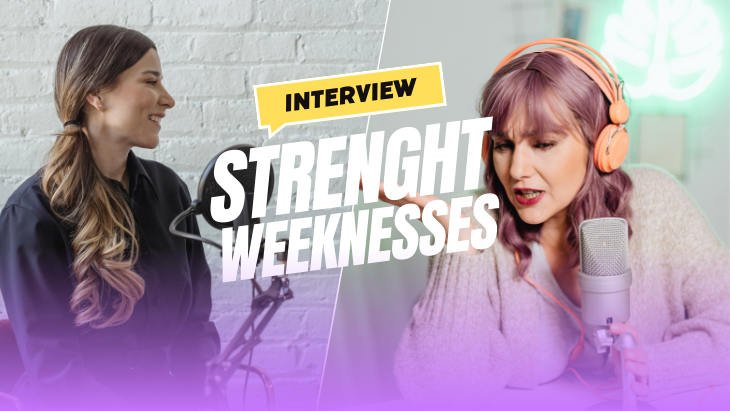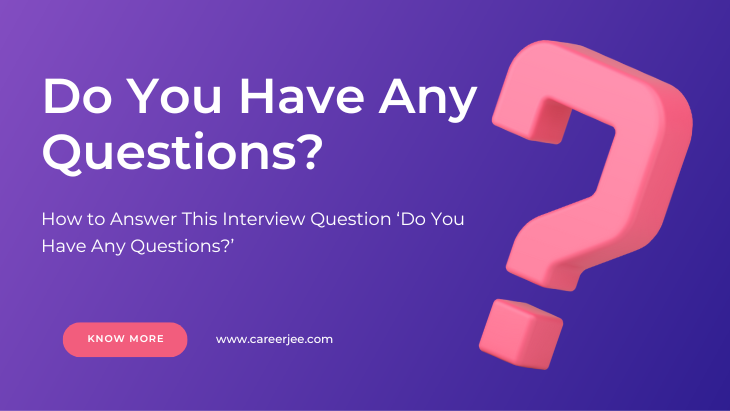How to Answer “What are your strengths and weaknesses?”
It’s important to answer this question carefully as it can influence how the interviewer perceives you. Let’s explore how to tackle this question strengths and weaknesses effectively, even if you’re new to interviews or have been in the workforce for a while.
Why the interviewer asks this question “What are your strengths and weaknesses?”
- This question helps the interviewer assess your self-awareness, honesty, and suitability for the role.
- It provides insight into how you perceive yourself and how you approach personal and professional development.
Challenges people face while answering the question “What are your strengths and weaknesses?”
- Candidates may struggle to accurately identify their strengths and weaknesses.
- Some may feel uncomfortable discussing weaknesses or worry about appearing too self-critical.
- It’s crucial to provide genuine examples and avoid clichés when discussing strengths and weaknesses.
What to focus in this interview question “What are your strengths and weaknesses?”
- When discussing strengths, highlight specific skills or qualities relevant to the job without using clichéd vocabulary.
- When discussing weaknesses, focus on areas for improvement and steps you’re taking to address them.
What not to focus on:
- Avoid cliché strengths like “I’m a perfectionist” without providing examples.
- Don’t mention weaknesses that are critical to the job you’re applying for.
- Aim for authenticity and avoid sounding rehearsed or insincere.
“What are your strengths and weaknesses?” Sample Answers For Freshers
Sample Answer: 1
For a fresher applying for a Software Engineering role: “I excel in problem-solving and critical thinking, which I’ve honed through my coursework and internships. For example, during my internship at [Tech Company], I faced a challenging coding problem and found a creative solution that improved efficiency by 20%. However, I recognize that I can sometimes struggle with time management when faced with multiple deadlines. To address this, I’ve started using time-tracking tools and prioritization techniques to improve my organizational skills.
Sample Answer: 2
For a fresher applying for a Marketing Assistant role: “One of my strengths is my creativity and ability to think outside the box, which has allowed me to develop innovative marketing strategies during my studies. For instance, I created a successful social media campaign for a class project that generated a 30% increase in engagement. On the other hand, I’m actively working on improving my public speaking skills. While I’m confident in written communication, I’m seeking opportunities to practice and enhance my verbal communication abilities.”
“What are your strengths and weaknesses?” Sample Answers For Experienced
Sample Answer: 1
For an experienced Project Manager: “I have a proven track record of successfully leading cross-functional teams and delivering projects on time and within budget. My strengths lie in my strong leadership, effective communication, and strategic planning abilities. However, I’m continuously striving to improve my delegation skills to empower my team members and maximize efficiency.”
Sample Answer:2
For an experienced Sales Executive: “I’m known for my strong negotiation skills, market research abilities, and persistence, which have contributed to consistently exceeding sales targets in my previous roles. However, I recognize that time management is an area where I can improve. I’m passionate about delivering results, but I sometimes find myself stretching too thin across multiple tasks. I’m actively working on prioritizing tasks and optimizing my workflow to maximize productivity.”
Q&A:
Q: How do I identify my strengths and weaknesses accurately? A: Reflect on past experiences, feedback from colleagues or mentors, and areas where you’ve excelled or struggled in previous roles. Consider how your strengths align with the job requirements and how you can address or mitigate your weaknesses.
Q: Should I mention weaknesses at all? A: Yes, it’s important to demonstrate self-awareness and a willingness to grow. However, focus on weaknesses that are not critical to the job and discuss how you’re actively working to improve them. Avoid mentioning weaknesses that could raise red flags or cast doubt on your ability to perform in the role.
Q: Can I provide the same strengths and weaknesses for every job interview? A: While it’s okay to have a general idea of your strengths and weaknesses, it’s essential to tailor your response to each job opportunity. Consider the specific skills and qualities required for the role and choose strengths that align with those requirements. Similarly, address weaknesses that are relevant to the job and demonstrate your commitment to personal and professional development.
Q: How do I strike the right balance between discussing strengths and weaknesses? A: It’s important to maintain a balanced approach when discussing strengths and weaknesses. Highlight your strengths confidently, providing examples or anecdotes to support them. When discussing weaknesses, be honest and transparent, but focus on how you’re actively addressing or overcoming them. Emphasize your willingness to learn and grow, which can leave a positive impression on the interviewer.
Q: Can I provide weaknesses that are actually strengths in disguise? A: While it’s tempting to frame weaknesses as strengths, it’s essential to be genuine and authentic in your response. Interviewers can often see through insincere answers, so it’s best to focus on areas where you genuinely have room for improvement. However, you can discuss how you’re leveraging your strengths to address or mitigate your weaknesses, demonstrating your proactive approach to self-improvement.


